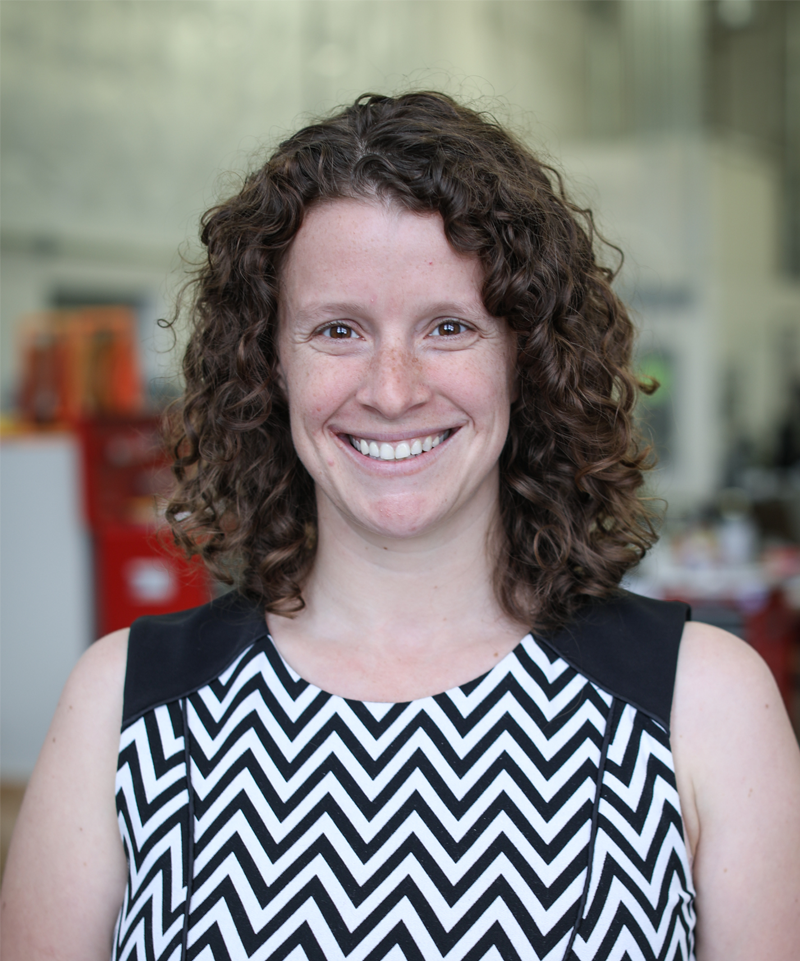Rocket girl
Alumna Maggie Scholtz is co-founder and vice president of engineering at First Mode, a Seattle-based engineering firm focused on tackling challenging problems on Earth and throughout the solar system.
The story of former NASA engineer Homer Hickam Jr. has caught the attention of many across the world, including Maggie Scholtz. Hickan’s passion for engineering as a young boy became the best-selling memoir Rocket Boys and inspired the 1999 film October Sky. For Scholtz, it was the catalyst for pursuing a career in engineering.
“I became inspired to work on something off planet. I just thought that was the coolest thing that you could possibly do. Through a lot of research that I had done, I decided that I absolutely had to work at the Jet Propulsion Lab in Pasadena, California on a Mars Rover,” says Scholtz, a 2008 alumna of the Department of Mechanical Engineering.
In high school at the time, Scholtz began figuring out what she needed to do to reach her goal. She toured the facilities at NASA’s Jet Propulsion Lab (JPL) and asked the engineers what college she should go to if she wanted to work on robotics on another planet. Their answer? Carnegie Mellon University.
“I would say most people in high school don’t usually focus on one objective of what they’re going to do. So, I think that was a little fortunate for me because I was able to make all of my decisions based on that metric, that one goal, that one objective,” says Scholtz.

Source: Maggie Scholtz
Scholtz leads a team of engineers who work on problems related to extreme conditions such as space, mobility systems, and clean energy systems.
The first part of Scholtz’s plan came to fruition when she was accepted to CMU’s College of Engineering. She settled into campus life and quickly became involved in robotics inside and outside of the classroom. Working with groups in the Robotics Institute, she got the opportunity to apply principles she was learning in her coursework to real-world designs and systems. She also became involved in the Robotics Club, which introduced her to the interdisciplinary nature of the field.
Through a lot of planning and a little bit of luck, Scholtz’s career lined up with her dream. After graduation, she got a position at JPL developing robotics for space exploration. She spent seven years at JPL working on the Mars Curiosity Rover and the Mars Perseverance mission.
Now, Scholtz is co-founder and vice president of engineering at First Mode, a Seattle-based engineering firm focused on tackling challenging problems on Earth and throughout the solar system. First Mode was founded by Scholtz and a group of fellow engineers in 2018. The group recognized the value of using a traditional systems engineering approach to solve problems in industry. So, they created a company that always starts with the problem in mind.
“We work from problem to prototype; we’re not just trying to make a bunch of widgets. We’re trying to help people better define the problem and then find the solution,” explains Scholtz. “And if we get to do that in a way that solves some pretty important problems in the world, then it’s very fulfilling to be able to have an impact.”
We work from problem to prototype; we’re not just trying to make a bunch of widgets. We’re trying to help people better define the problem and then find the solution.
Maggie Scholtz, Co-Founder and Vice President of Engineering, First Mode
Scholtz leads a team of engineers who work on problems related to extreme conditions such as space, mobility systems, and clean energy systems. At their hardware development center in Seattle, for example, First Mode engineers are integrating an over two-megawatt hybrid battery/hydrogen fuel cell power module to replace the diesel generator that currently powers mining company Anglo American’s 300-metric-ton capacity haul trucks. First Mode’s mobilization of this utility-scale, clean power generation method will result in one of the world’s largest zero-emission vehicles.
Despite all of her research and planning, Scholtz has found the world of engineering to be very different than what her high school-self thought she would find.
“As soon as you leave the textbook, there’s no one right answer. You still draw from all of the first principles and everything that you’re taught and you learn in school. But the actual act of problem-solving in the real world is very different. And one big part of that is actually how a system works as a whole, how a team works together in order to solve, to develop new things to solve problems.”
